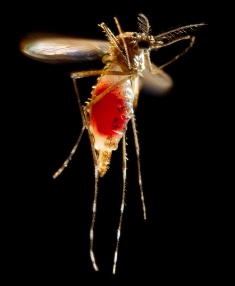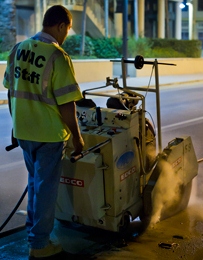Archive for January 12th, 2012

Lawyers adopt own code
 (CNS): Members of Cayman Islands’ legal profession have voluntarily adopted the code of conduct which forms part of the stalled legal practitioner’s bill, even though the law has not been passed in the Legislative Assembly. Dale Crowley, president of the Caymanian Bar Association, has said that the association in partnership with the Law Society has adopted thecode after government failed to pass the legislation that had been agreed by the profession, resulting in local lawyers losing the ability to practice overseas. Crowley said the profession was hoping the adoption of the conduct, despite the absence of a law, would persuade the UK bar to reinstatement of the right of Caymanian lawyers to qualify in Britain.
(CNS): Members of Cayman Islands’ legal profession have voluntarily adopted the code of conduct which forms part of the stalled legal practitioner’s bill, even though the law has not been passed in the Legislative Assembly. Dale Crowley, president of the Caymanian Bar Association, has said that the association in partnership with the Law Society has adopted thecode after government failed to pass the legislation that had been agreed by the profession, resulting in local lawyers losing the ability to practice overseas. Crowley said the profession was hoping the adoption of the conduct, despite the absence of a law, would persuade the UK bar to reinstatement of the right of Caymanian lawyers to qualify in Britain.
The proposed law to govern the local legal profession has raised controversy because of the issues relating to immigration and what some have said is the discrimination of Caymanian professionals and trainees. In September the premier stated that it was the legal profession that could not agree and he had instructed local lawyers Sherri Bodden-Cowan and Theresa Pitcairn, who have been conducting research on the issue, to help draft a new bill.
However, speaking at the Grand Court opening on Wednesday, Crowley said the bill was agreed on over two years ago by both the Bar Association, which has 150 lawyers as members, and the Law Society, which represents the majority of the legal firms in Cayman.
Law Society President Charles Jennings echoed Crowley’s comments when he said that despite enjoying “the overwhelming support of the profession as a whole”, the bill had remained unpassed and both professional associations were unsure where it now stood.
“The bill seeks to address the practice of law, not, as some seem to think, immigration issues, and I believe it has aroused a great deal of controversy for reasons that are beyond its remit,” Jennings said in his own speech at the court opening ceremony. “Since however nobody so far has approached the Law Society to explain them to us, it is hard for us to know how we can meet them.”
Jennings explained that, since it appears the legislation will not be passed, the profession had taken it upon itself, on a firm-by-firm basis, to voluntarily adopt a Code of Conduct in the same form submitted to the government some seven years ago. He said there were 25 law firms from the society representing the vast majority of the lawyers practicing in Cayman.
The failure of government to pass the bill has resulted in a loss of market share as an international financial centre and harmed Cayman’s reputation as a progressive jurisdiction, Crowley said Wednesday as he explained the need for adopting the code in the absence of the legislation.
He added that the profession had witnessed first-hand the negative impact that the failure to pass the legislation has had on Caymanian lawyers, who lost the ability to qualify in the United Kingdom based on their Cayman professional qualification because of the absence of a Code of Conduct.
“This prevents many young Caymanian lawyers from pursuing experience and opportunity in the United Kingdom, and also acts to severely curtail opportunities in other offshore jurisdictions where a UK qualification is required, including the BVI, Bermuda, the Channel Islands and Hong Kong – all jurisdictions in which Cayman firms have a presence,” Crowley said.
The Bar Association will now apply to the Law Society of England and Wales for a reinstatement of the right of Caymanian lawyers to qualify into the United Kingdom, the president added.
See code of conduct here.

Cayman’s GM mozzies may have reproduced
 (CNS): The genetically modified mosquitoes released in the Cayman Islands over a year ago as part of a research study on the eradication of dengue fever by the UK-based company Oxitec could have reproduced and mixed in with the local population. According to a redacted document released to GeneWatch UK following a freedom of information request in Britain, the genetically modified pests, which the manufacturer described as sterile, did produce offspring around 15 percent of which survived. During the study the GM mozzies were fed cat food containing chicken contaminated with low levels of tetracycline, which allowed the mosquitoes to reproduce with their offspring surviving to adulthood.
(CNS): The genetically modified mosquitoes released in the Cayman Islands over a year ago as part of a research study on the eradication of dengue fever by the UK-based company Oxitec could have reproduced and mixed in with the local population. According to a redacted document released to GeneWatch UK following a freedom of information request in Britain, the genetically modified pests, which the manufacturer described as sterile, did produce offspring around 15 percent of which survived. During the study the GM mozzies were fed cat food containing chicken contaminated with low levels of tetracycline, which allowed the mosquitoes to reproduce with their offspring surviving to adulthood.
The international charity, Friends of the Earth, has accused the company of trying tried to hide the evidence that its technology failed to prevent reproduction.
The release of the genetically modified mosquitoes in the Cayman Islands, where there are no biosafety laws or regulations, caught the international scientific community and most residents by surprise. The release took place in East End.
The goal of Oxitec’s research was to prevent the progeny of GM mosquitoes from surviving in the wild, thereby reducing mosquito populations. However, the activist group said that failure to prevent reproduction in the presence of low levels of tetracycline is cause for concern, raising the spectreof genetically modified mosquitoes surviving and breeding, producing adult populations of GM mosquitoes, including GM females which can bite and transmit disease.
“The antibiotic tetracycline is widely used in agriculture and is present in sewage as well as in industrially farmed meat. Mosquitoes that carry dengue fever are known to breed in environments contaminated with sewage where they are likely to encounter widespread tetracycline contamination,” Friends of the Earth stated in a release relating to the revelations of the document from Oxitec.
The global green movement noted that GM females might cause unknown impacts on human health, such as allergies, and that the ecological implications of GM mosquitoes surviving and breeding are also unknown.
Even in the absence of tetracycline contamination, the GM mosquitoes are known to survive in the laboratory at rates of around 3 percent. In the field, this would translate into large numbers of survivors, given that continual releases of millions of GM mosquitoes would be needed to sustain the goals of population suppression.
“The fact that Oxitec is hiding data from the public has undermined its credibility,” said Eric Hoffman of Friends of the Earth US. “Oxitec’s assertions cannot be trusted. Trials of its mosquitoes must not move forward in the absence of comprehensive and impartial reviews of the environmental, human health and ethical risks. Such trials must also await the establishment of a clear and well-designed regulatory framework, which does not yet exist.”
Oxitec has released genetically modified mosquitoes in field experiments in Malaysia and Brazil as well as Cayman, where the first release took place, and the firm was planning a release in the Florida Keys in April this year.
Lucia Ortiz of Friends of the Earth Brazil said that Oxitec was using poor regions in the Global South, such as cities in the Northeast region of Brazil, as its laboratories
“Oxitec has not proven its mosquitoes are safe for people or the environment, nor has it been open and honest with the local communities about the possible risks its technology poses,” he said. “This news only highlights the need for all the company’s data on its mosquitoes to be made public so people and local governments can make informed decisions as to whether or not they want GM mosquitoes in their communities.”
Other countries where releases of Oxitec’s GM mosquitoes have been proposed include Panama, India, Singapore, Thailand, Vietnam, the Philippines, Costa Rica and Trinidad & Tobago.
See the Oxitec document here

Government plans tourist market for West Bay
(CNS Business): In an effort to distribute some of the tourist dollar to the West Bay area, the government is planning to establish a “market by the sea” in the district that will sell and showcase Cayman crafts and local produce, officials have said. The premier revealed the intention of his ministry to create the new market in his New Year message and his office has confirmed that the goal of the project is to enhance cultural tourism as well develop tourism amenities outside of the current George Town and Seven Mile Beach concentration. Still in its conceptual phase, the market will be located at the beginning of North West Point Road. Read more on CNS Business

Scientist find eyeless shrimp in Cayman trench
 (CNS): White-tentacled anemones and eyeless shrimps and are among the new forms of life scientists have found thriving near the super-hot underwater vents in the Cayman Trench this week One group of Scientists from the National Oceanography Centre have discovered a six centermetre long shrimp with no eyes but a light-sensing organ on its back in an undersea hot spring. Named Rimicaris hybisae researchers says it is related to a species called Rimicaris exoculata previously discovered in the mid-Atlantic ridge. The vent, in which this latest kind of shrimp was found discharges thick black smoke and reaches a scorching 450 degrees Celsius and is rich inminerals such as copper.
(CNS): White-tentacled anemones and eyeless shrimps and are among the new forms of life scientists have found thriving near the super-hot underwater vents in the Cayman Trench this week One group of Scientists from the National Oceanography Centre have discovered a six centermetre long shrimp with no eyes but a light-sensing organ on its back in an undersea hot spring. Named Rimicaris hybisae researchers says it is related to a species called Rimicaris exoculata previously discovered in the mid-Atlantic ridge. The vent, in which this latest kind of shrimp was found discharges thick black smoke and reaches a scorching 450 degrees Celsius and is rich inminerals such as copper.
"Studying the creatures at these vents, and comparing them with species at other vents around the world; will help us to understand how animals disperse and evolve in the deep ocean," Dr. Jon Copley, a marine biologist at the University of Southampton said about the discovery.
"Finding black smoker vents on Mount Dent was a complete surprise," adds Dr. Doug Connelly, a marine geochemist at the National Oceanography Centre. "Hot and acidic vents have never been seen in an area like this before, and usually we don't even look for vents in places like this."
He explained that one of the big mysteries of deep-sea vents is how animals are able to disperse from vent field to vent field, crossing apparently large distances."
The researchers found the previously unknown vents on the upper slopes of Mount Dent, which rises some 3km from the sea floor in the Cayman trench area but its peaks are still another 3kilometres below the surface. The discoveries suggest that active deep-sea volcanic vents are more widespread around the globe than previously thought, he added.
The scientists also found hundreds of white anemones lining the cracks where warm, copper-rich water seeps from the seabed as well as snake-like fish, an unknown species of snail and a flea-like crustacean called an amphipod.

Traffic snarls possible in face of GT water-works
 (CNS): Hospital Road in George Town will be reduced to one-lane next week when the Water Authority starts work to replace the main water supply pipeline in the area. The authority is warning drivers that the north bound lane from the 4way junction to Elgin Avenue will be closed and motorists are encouraged to use alternative routes. During the pipe-laying work, Hospital Road will be closed and traffic restricted to local traffic only while the regular traffic is facilitated through temporary traffic signals or flag men. The Hospital Road pipeline replacement project is part of the Water Authority’s ten-year capital plan to expand and upgrade its water and wastewater infrastructure. (Photo Dennie Warren Jr)
(CNS): Hospital Road in George Town will be reduced to one-lane next week when the Water Authority starts work to replace the main water supply pipeline in the area. The authority is warning drivers that the north bound lane from the 4way junction to Elgin Avenue will be closed and motorists are encouraged to use alternative routes. During the pipe-laying work, Hospital Road will be closed and traffic restricted to local traffic only while the regular traffic is facilitated through temporary traffic signals or flag men. The Hospital Road pipeline replacement project is part of the Water Authority’s ten-year capital plan to expand and upgrade its water and wastewater infrastructure. (Photo Dennie Warren Jr)
The work startson Monday January when the current aged 8-inch diameter pipeline will be replace with a new pipeline in order to improve reliability.
“The main pipeline that runs along Hospital Road was installed in the late 1980’s and since that time the demand for water has increased significantly,” said Tom van Zanten, Deputy Director of the Water Authority. “The water distribution system has seen tremendous growth over the past twenty years and the 8-inch pipe now needs to be replaced in order for us to deliver water efficiently and reliably.”
The Water Authority recently completed a similar project to replace the aging pipeline along South Church Street. The replacement works will continue through mid-February 2012, barring any unforeseen occurrences. Most work will be carried out during the day, between the hours of 9am and 3:30pm.
Steps have been taken by the government water company to ensure that service to their customers in the area is not affected, the authority said.
“Prior to pipe laying of the new pipe, a temporary pipeline will be installed to ensure that water service to our customers in the immediate area is not interrupted while the main pipeline is out of service,” said Larry Washburn, Operations Manager. “We will also backfill the trenches at the end of each day as a safety measure.
“Due to the narrowness of the road, and the importance of safety, the Water Authority will perform most of the upgrade work at day, between the hours of 9am and 3:30pm,” he added.
For more information on the Water Authority visit www.waterauthority.ky.